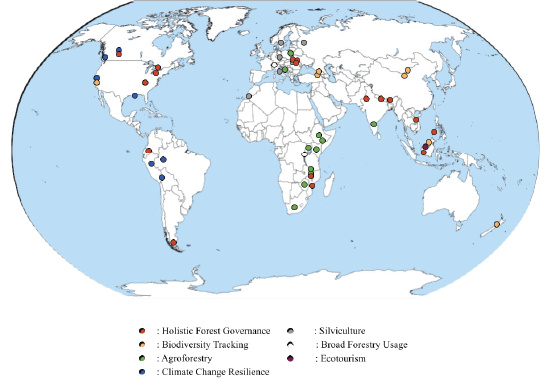Traditional ecological knowledge in forestry: Trends and prospects
DOI:
https://doi.org/10.7251/GSF2333004CKeywords:
forestry governance, indigenous rights, literature synthesis, policy frameworks, socioeconomics, traditional ecological knowledge (TEK)Abstract
Ensuring the protection of natural environments is vital for the prosperity of future generations. In all forested regions of the globe, local traditions have been essential in creating healthy human-forest relationships. These practices can be summed up as Traditional Ecological Knowledge (TEK), forming an increasingly important factor to consider when developing practical and effective forestry policy. Despite the international community’s gradual acceptance of TEK as a valid policy guide, the field of forestry in many regions of the world continually ignores this crucial concept. As such, many forest ecosystems are harvested in ways that do not reflect the values of local - and often indigenous - communities, resulting in socio-economic divisions and unsustainable environmental degradation. This paper examines the state of TEK in the forestry sector through conducting a comprehensive literature synthesis of thirty-six published papers. Based on trends within the selected literature, the majority of articles identify TEK as providing social, political and economic benefits to the forestry sector. The literature also indicates that governmental and non-governmental forestry actors have and continue to neglect TEK as a policy tool, with 72% of the works examined directly discussing the damaging effects of this trend. The implications of these results are discussed in the light of temporal issues relating to the forestry sector, providing an impetus for both academics and leaders in forestry to consider the importance of TEK in policy and research.

Downloads
Published
Issue
Section
License
Copyright (c) 2023 Toby Czarny

This work is licensed under a Creative Commons Attribution 4.0 International License.